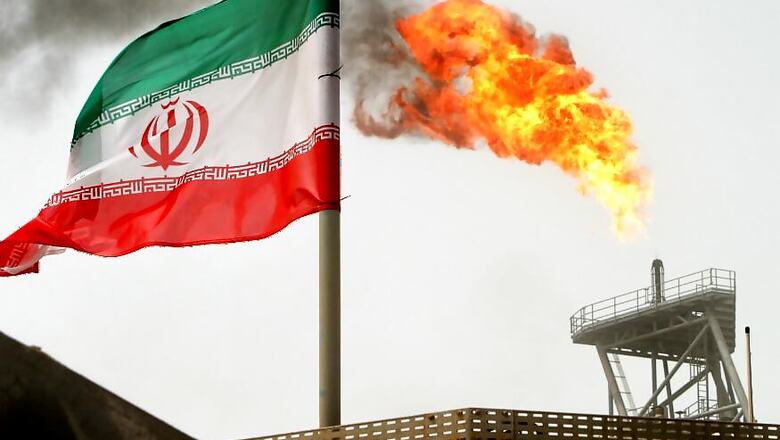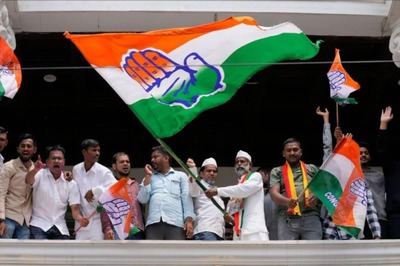
views
New Delhi: Amid US sanctions, Iran on Tuesday said it believes India will act in its national interest on the issue of oil imports and Tehran can act as a "protector" of India's energy security.
Iran's Ambassador to India Ali Chegeni also asserted that his country can provide "affordability, accessibility and security" of energy to India.
The Iranian envoy also alluded to the possibility of using barter, rupee and European mechanisms for trade in oil with India and other countries to circumvent the US sanctions.
His remarks assume significance, as they come days after US Secretary of State Mike Pompeo, had assured India that America is "doing everything" to ensure crude oil imports to New Delhi in the wake of the situation arising out of sanctions on importing oil from Iran.
Pompeo had said India has made "hard choices" to cut off oil imports from Iran.
Referring to External Affairs Minister S Jaishankar's remarks at the joint press interaction with Pompeo here last week, Chegeni said: "If Mr. Jaishankar said affordability, accessability and security of energy. Iran is the only country that can provide all these aspects of energy for India."
"We expect from a friend...that we understand each other, follow our national interest and Iran is ready for being the protector of energy security of India," he told reporters on the sidelines of an Iran-India cultural event here.
Chegeni said that probably the oil import may have been stopped but Iran had not got any "negative signal" from India that they would do so in future.
"India is a friend forever. We understand that India will act according to its national interest. As we understand from Mr. Jaishankar's statement that India will follow its national interest. That is acceptable for everybody," he said.
"We think India is under pressure, but we believe India is a friend of Iran. India's relations with other countries do not affect us. Our relations with India are based on history, it is based on long-term mutual benefit and interest," the envoy said.
Asked about the possibility of Chabahar port project getting affected despite not coming under US sanctions, Chegeni said it showed the "hypocrisy" of Americans that they say something else and do something else.
He alleged that the US was applying "indirect" sanctions on the project. "We wish the golden gate (Chabahar) will not be affected, but indirectly it could be impacted," he said.
The envoy also accused the US of indulging in "terrorist acts" by applying economic sanctions on various countries. "I am calling the US of being a state terrorist against Cuba, Venezuela and Iran...They will isolate themselves," he claimed.
On India making up its oil needs from Saudi Arabia and the US, Chegeni said Iran does not force its consumers and India will decide for itself. He also asserted that the oil issue will not affect India-Iran ties.
Chegeni also claimed that many countries were buying oil from Iran both officially and unofficially. "Our oil is sold, destinations are secret," he asserted.
The envoy also hoped that India's trade relationship with Iran will continue to expand. "Up to April, our bilateral trade between the two countries was 18 billion, while in previous years it was 13.7 billion.," he said.
The envoy said Iran's Pasargad Bank had got all its clearances and will open a branch in Mumbai soon.
As six-month-long exemptions from US sanctions to buy oil from Iran ended in May, India had said it will deal with the issue based on three factors -- the country's energy security, commercial consideration and economic interests.
In November, the US had granted a six-month waiver to India, China, Greece, Italy, Taiwan, Japan, Turkey and South Korea to continue importing oil from Iran. The temporary waiver ended on May 2.
In May last year, the US had brought back sanctions on Iran after withdrawing from the Iran nuclear deal which was struck in 2015.
The US had told India and other countries to cut oil imports from the Gulf nation to "zero" by November 4 or face sanctions. However, Washington had granted a six-month waiver from sanctions to eight countries, including India.

















Comments
0 comment